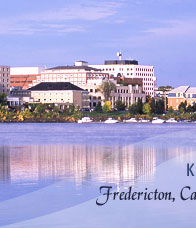10 Steps Trudeau Can Take Immediately To Improve Canadian Immigration
10/23/2015
In the course of the recent Canadian election campaign Prime Minister-elect Justin Trudeau promised a variety of measures to improve Canada’s immigration system. For example, he proposed to adopt policies that would better facilitate family reunification by speeding up processing times and doubling the budget for that purpose. He promised to eliminate the two year wait time to get permanent residence for spouses of Canadians in the country and to double the yearly number of parents and grandparents who would be able to immigrate to Canada from 5000 to 10,000. He promised to provide extra points for siblings applying under Express Entry and to raise the age of dependents back to 22 from 19 years of age.
He made promises in other areas of immigration as well, but probably the area that will have the best chance of success is the promise to double the budget for processing immigration applications, particularly if it helps to eliminate the two-year waiting period for foreign spouses to be processed in Canada. However, even here not everything is that easy. The two year current wait time for internal spousal sponsorship cases involves police clearances, medicals and security checks – items that no doubt can be speeded up, but not eliminated. A related problem is overseas processing of spousal cases that for the most part is taking a year and therefore also merits expediting. Because of the medical and police matters, it may be wiser in both these instances to grant the foreign spouses temporary resident visas with permission to work if they can produce a credible marriage certificate or other evidence of a subsisting relationship. This would at least keep the couples together and remove the financial hardships they face until the necessary checks can be completed, hopefully on a more expedited basis given the increased funding.
Trudeau’s promise to help parents and grandparents is a more daunting challenge. Today if your parent is lucky enough to be accepted at the beginning of the year as one of the 5000 maximum annual applications accepted, the current processing time to get that applicant to Canada can be as long as nine years. Even if the number to be accepted is increased to 10,000 that does not solve the processing part of the problem although, hopefully, doubling the budget will help.
These examples reveal the underlying problem with processing – the problem of a lack of a systematic approach like, for example, “The Toyota Way” or the way FEDEX or Amazon handle their processing problems. If Trudeau really wants to improve processing times in these and other areas of immigration, he should invite practical advisors, including ones from these firms, to advise the government on how to improve Canada’s immigration system.
Forbes -Andy J. Semotiuk
|





